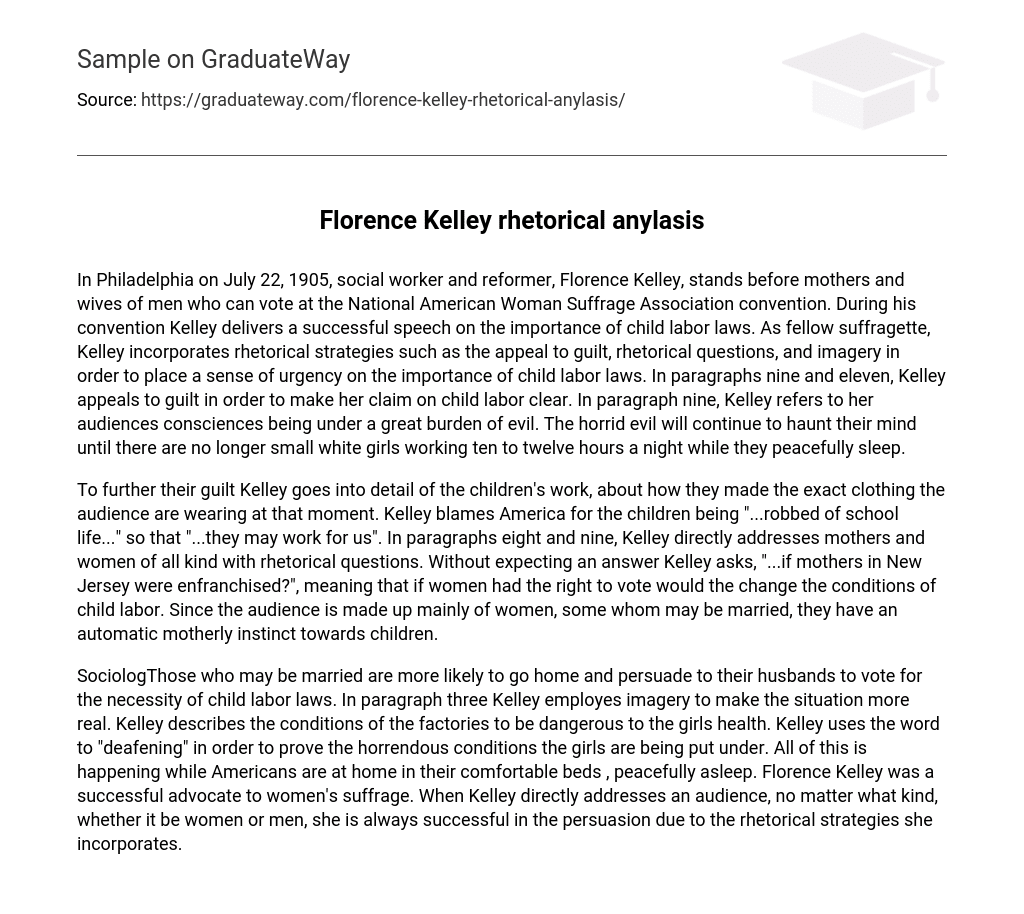Florence Kelley, a social worker and reformer, delivers a successful speech on the importance of child labor laws at the National American Woman Suffrage Association convention in Philadelphia on July 22, 1905. As a fellow suffragette, Kelley employs rhetorical strategies like appealing to guilt, using rhetorical questions, and utilizing imagery to emphasize the urgency of child labor laws. In paragraphs nine and eleven, she appeals to her audience’s sense of guilt to highlight the gravity of the issue. In paragraph nine, Kelley mentions the burden of evil on her audience’s conscience and how it will continue to haunt them until the exploitation of small white girls working long hours while they sleep peacefully is eradicated.
To further emphasize their guilt, Kelley provides a detailed account of the children’s work, specifically highlighting how they produced the very same clothing that the audience is currently wearing. Kelley places the blame on America for depriving these children of their education in order for them to serve as laborers for us. In paragraphs eight and nine, Kelley directly speaks to mothers and women in general, posing rhetorical questions. Without expecting a response, Kelley wonders if the enfranchisement of mothers in New Jersey would lead to improved conditions for child labor. Given that the majority of the audience consists of women, many of whom may be married, they naturally possess a maternal instinct towards children.
Sociologist Florence Kelley effectively uses rhetorical strategies to advocate for women’s suffrage and the necessity of child labor laws. Kelley appeals to the emotions of her audience by vividly describing the dangerous factory conditions that young girls endure. She highlights the word “deafening” to emphasize the horrendous nature of these conditions. Kelley also points out the stark contrast between the comfort of Americans’ beds and the harsh reality faced by these girls. Regardless of the audience, whether it is women or men, Kelley’s persuasive techniques always prove successful in her advocacy efforts.





